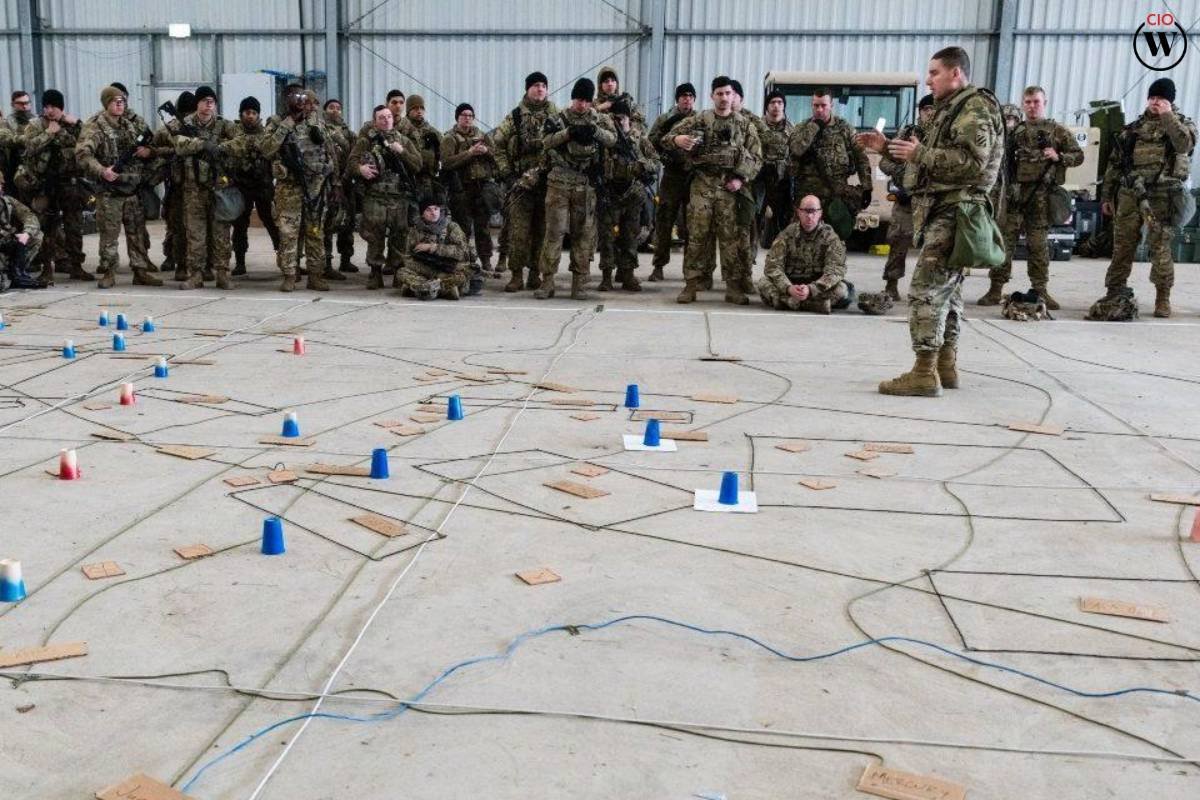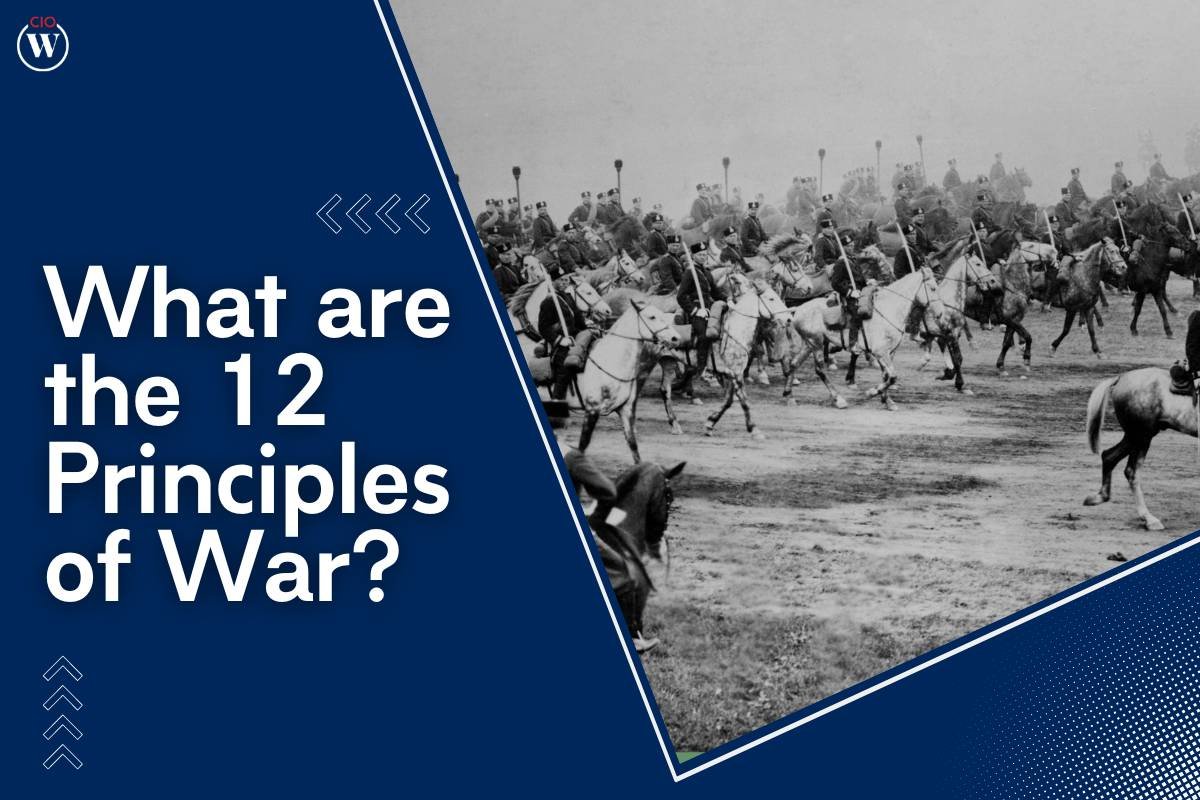In the realm of military strategy and tactics, the principles of war stand as foundational concepts that guide commanders and planners in the conduct of warfare. These principles, developed over centuries of military history, serve as a framework for decision-making, ensuring efficiency, effectiveness, and success on the battlefield. Whether in ancient battles or modern conflicts, understanding and applying these principles is crucial for achieving victory. In this article, we delve into the 12 principles of war, elucidating their significance and relevance in contemporary military operations.
Let’s explore 12 principles of War:
1. Objective
At the heart of any military endeavor lies the clarity of purpose encapsulated in the principle of Objective. This principle emphasizes the necessity of defining clear and achievable objectives before engaging in any operation. Whether seizing territory, neutralizing enemy forces, or achieving a strategic advantage, a well-defined objective provides focus and direction, guiding the allocation of resources and efforts toward a specific goal. Without a clearly defined objective, military actions risk becoming aimless and ineffective, ultimately leading to strategic failure. Thus, this becomes one of the most crucial principles of war.
2. Offensive

The principle of Offensive underscores the importance of seizing and maintaining the initiative in warfare. By taking the offensive, military forces exert pressure on the enemy, dictating the terms of engagement and forcing adversaries into a defensive posture. Offensive actions aim to exploit weaknesses, disrupt enemy plans, and gain positional advantage, ultimately shaping the course of the conflict in favor of the aggressor. Through offensive operations, commanders seek to maintain momentum, control the tempo of battle, and keep the enemy off-balance, thereby maximizing their chances of success.
3. Mass
In the context of military operations, Mass refers to the concentration of combat power at the decisive point and time. This principle emphasizes the strategic importance of assembling sufficient forces, firepower, and resources to overwhelm the enemy and achieve decisive outcomes. By massing forces, commanders can create local numerical superiority, penetrate enemy defenses, and exploit vulnerabilities, thereby amplifying the effectiveness of their actions. Whether through the concentration of troops or the deployment of overwhelming firepower, the principle of Mass remains essential for achieving decisive results on the battlefield.
4. Economy of Force
While Mass advocates for concentration, the principle of Economy of Force stresses the judicious allocation and conservation of resources across the entirety of the battlefield. Recognizing the inherent limitations of military power, commanders must prioritize the efficient use of available assets to achieve strategic objectives. Economy of Force requires commanders to allocate resources based on the relative importance of objectives, focusing their efforts where they can yield the greatest impact. By avoiding unnecessary expenditures and conserving resources for critical tasks, commanders can optimize their combat effectiveness and sustain operations over extended periods.
5. Maneuver
Maneuver represents the art of employing tactical flexibility and mobility to outmaneuver and outflank the enemy. This principle emphasizes the importance of agility, surprise, and adaptability in gaining positional advantage and exploiting enemy weaknesses. Through skillful maneuvering, commanders can disrupt enemy formations, bypass fortified positions, and seize key terrain, thereby shaping the operational environment to their advantage. Whether through the use of flanking maneuvers, infiltration tactics, or rapid redeployment, the principle of Maneuver enables commanders to maintain the initiative and outmaneuver their adversaries on the battlefield.
6. Unity of Command

Unity of Command serves as one of the most important principles of war, ensuring a coherent and coordinated approach to warfare. This principle emphasizes the necessity of placing all forces under a single unified command structure, thereby avoiding confusion, duplication of effort, and conflicting directives. By centralizing command authority, commanders can synchronize their efforts, harmonize their actions, and maximize the efficiency of their forces. Unity of Command fosters clarity of purpose, facilitates rapid decision-making, and enhances operational effectiveness, ultimately enabling military forces to achieve synergy and coherence in their actions.
7. Security
Security stands as a fundamental principle of war, emphasizing the imperative of protecting friendly forces and operations from enemy threats and disruptions. This principle encompasses a range of measures aimed at mitigating risks, preserving freedom of action, and denying the enemy valuable intelligence. Security operations encompass reconnaissance, surveillance, and counterintelligence activities, aimed at gathering information, detecting threats, and denying the enemy the element of surprise. By maintaining security, commanders can safeguard their forces, preserve operational integrity, and prevent the enemy from gaining a decisive advantage through exploitation or infiltration.
8. Surprise
Surprise represents a potent weapon in the arsenal of military strategy, capable of confounding enemy expectations and disrupting their plans. This principle advocates for the deliberate and calculated use of deception, secrecy, and unconventional tactics to achieve tactical and strategic advantage. By catching the enemy off guard, commanders can exploit vulnerabilities, sow confusion, and seize the initiative, thereby gaining a decisive edge in combat. Whether through the element of speed, deception operations, or unconventional tactics, the principle of Surprise enables commanders to achieve disproportionate results and shape the course of the conflict in their favor.
9. Simplicity
In the complex and dynamic environment of warfare, the principle of Simplicity emphasizes the importance of clarity, clarity, and conciseness in planning and execution. This principle advocates for the avoidance of unnecessary complexity, bureaucratic red tape, and overly intricate plans that can hinder agility and responsiveness. By prioritizing simplicity, commanders can enhance operational flexibility, facilitate decentralized decision-making, and streamline command and control processes. Simplicity fosters clarity of purpose, minimizes the risk of misunderstandings, and enables commanders to adapt rapidly to changing circumstances, thereby maximizing their effectiveness on the battlefield.
10. Morale
Morale stands as a critical factor in determining the combat effectiveness and resilience of military forces. This principle emphasizes the importance of maintaining high morale among troops through effective leadership, motivation, and esprit de corps. High morale fosters cohesion, determination, and resilience in the face of adversity, enabling units to withstand hardships, overcome challenges, and persevere in the pursuit of their objectives. By nurturing a positive and supportive command climate, leaders can inspire confidence, instill a sense of purpose, and cultivate a fighting spirit among their troops, thereby enhancing their overall effectiveness and combat readiness.
11. Initiative
The initiative represents the proactive and assertive spirit that drives military forces to seize opportunities, exploit advantages, and shape the course of battle. This principle advocates for decentralized decision-making, empowering subordinate commanders to take decisive action based on the intent and guidance provided by higher headquarters. By fostering a culture of initiative, commanders can harness the creativity, resourcefulness, and ingenuity of their subordinates, enabling them to respond rapidly to changing circumstances and exploit fleeting opportunities on the battlefield. Initiative allows military forces to maintain momentum, retain the element of surprise, and keep the enemy off balance, thereby increasing their chances of success in combat.
12. Friction
The list of principles of war is incomplete without friction. It serves as a constant and unavoidable reality in the conduct of warfare, encompassing the myriad uncertainties, challenges, and obstacles that impede the smooth execution of military operations. This principle emphasizes the need for commanders to anticipate and mitigate friction through effective planning, training, and leadership.

By acknowledging the inevitability of friction, commanders can adapt their plans, allocate resources, and prepare their forces to overcome obstacles and persevere in the face of adversity. Friction underscores the importance of flexibility, resilience, and improvisation in responding to unexpected challenges, ensuring that military forces can maintain their effectiveness and achieve their objectives despite the rigors of combat.
Conclusion
In conclusion, the 12 Principles of War constitute a timeless and indispensable framework for the conduct of military operations. We hope you liked reading this blog. If you did, please visit www.ciowomenmagazine.com for more!
Also read: Mastering Military Leadership Principles: A Guide To Effective Command








